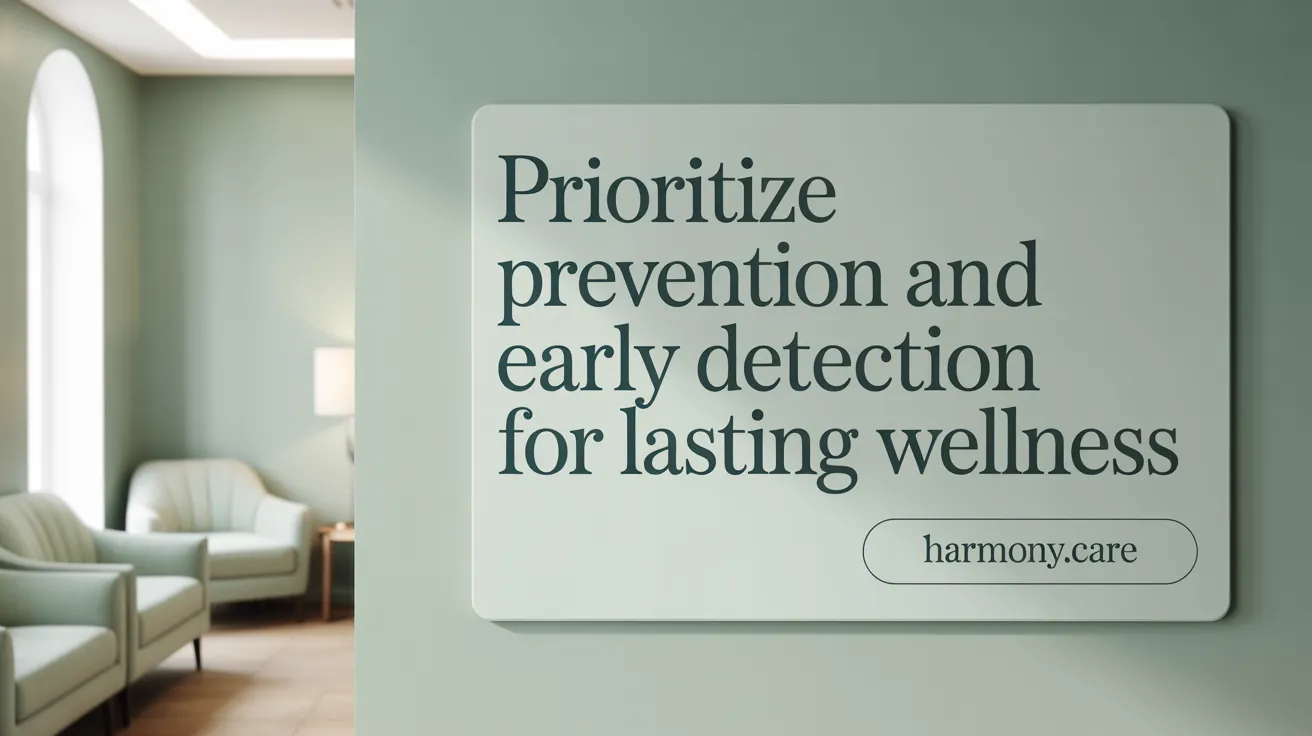Understanding Holistic Wellness for Women
Holistic wellness embraces the interconnectedness of the body, mind, and spirit, providing personalized health strategies that evolve alongside women through every stage of life. By integrating movement, nutrition, stress management, and sleep with preventive care and natural therapies, women can achieve lasting well-being and vitality. This article explores comprehensive, evidence-based holistic approaches tailored to women's unique health needs across adolescence, reproductive years, menopause, and beyond.
Foundations of Holistic Health Across Life Stages
 Holistic health strategies for women across various life stages involve personalized approaches that address physical, emotional, mental, and spiritual well-being. These strategies emphasize foundational pillars such as movement, nutrition, stress management, and sleep, tailored to different phases like puberty, reproductive years, menopause, and older age.
Holistic health strategies for women across various life stages involve personalized approaches that address physical, emotional, mental, and spiritual well-being. These strategies emphasize foundational pillars such as movement, nutrition, stress management, and sleep, tailored to different phases like puberty, reproductive years, menopause, and older age.
From adolescence to old age, women’s health plans should include regular screenings—such as for high blood pressure, cholesterol, diabetes, and cancers like breast and colon—to detect issues early and tailor interventions accordingly (preventive health screenings women).
Developing healthy habits early in adulthood, like balanced nutrition, consistent exercise, quality sleep, and mental health practices, supports long-term vitality (healthy habits in adulthood, nutrition for women, stress management techniques). As women transition into midlife and menopause, adjustments are necessary to combat hormonal shifts that impact metabolism, heart health, and bone density (menopause hormone changes, midlife and menopause health).
Natural remedies, lifestyle modifications, and minimizing environmental toxins are integral to maintaining health (reducing exposure to synthetic chemicals, stress management strategies, holistic women's health care). In aging women, a focus on cognitive health, mobility, independence, and social engagement becomes increasingly important (aging women's cognitive health, maintaining mobility in aging, independence and social connection).
Fostering social connections plays a vital role, linked to happiness, health, and longevity (social connections and health). This comprehensive, holistic approach not only addresses current health concerns but also prepares women for sustained wellness, encouraging active participation in their health journey (holistic women's health approach).
Ultimately, these strategies aim to empower women to understand their changing needs, promote resilience, and cultivate a life of well-being across all ages (comprehensive women's health resources).
Principles and Practices of Holistic, Natural, and Integrative Women's Health
 Holistic, natural, and integrative approaches to women's health focus on treating the whole person—body, mind, and spirit—recognizing the complex interplay between physical health, emotional well-being, and spiritual balance. These strategies emphasize the importance of viewing health as a dynamic state that involves more than just the absence of disease, but includes overall wellness and quality of life.
Holistic, natural, and integrative approaches to women's health focus on treating the whole person—body, mind, and spirit—recognizing the complex interplay between physical health, emotional well-being, and spiritual balance. These strategies emphasize the importance of viewing health as a dynamic state that involves more than just the absence of disease, but includes overall wellness and quality of life.
A central element of these approaches is fostering a strong partnership between the patient and healthcare provider. This collaborative relationship ensures personalized care, where women are active participants in their health decisions, advocating for treatments that align with their unique needs and values.
Evidence-based complementary therapies form a core part of integrative women’s health. Practices such as acupuncture, yoga, meditation, massage, functional nutrition, and herbal medicine are used alongside conventional medicine to support hormonal balance, reduce symptoms, and promote healing. These therapies are supported by research and aim to complement traditional treatments, providing safer and often more natural options for managing health concerns.
Prevention and health promotion are fundamental principles. Regular screenings, early risk detection, and lifestyle modifications—such as balanced nutrition, regular exercise, adequate sleep, and stress management—are prioritized. These steps help prevent chronic diseases like heart disease, osteoporosis, and hormonal imbalances, reducing reliance on invasive procedures or medications.
Lifestyle modifications are tailored to individual life stages and health challenges. Women are encouraged to adopt habits that support long-term well-being, including nourishing diets, physical activity suitable for their age, mindfulness practices, and environmental awareness.
Integration with conventional treatments is seamless in these models. They aim to support and enhance standard medical care, providing a comprehensive approach that minimizes side effects, improves symptom management, and fosters resilience.
Overall, the guiding principles of holistic, natural, and integrative women's health promote a comprehensive and individualized pathway to wellness—centering on prevention, balance, and empowerment—thus enabling women to achieve optimal health throughout all phases of life.
Prevention, Early Detection, and Lifestyle Modifications for Optimal Wellness
 Preventive care and lifestyle choices are the cornerstones of maintaining good health for women at every stage of life. Regular screenings such as mammograms and Pap tests, blood pressure monitoring, and cholesterol checks are vital for early detection of conditions like breast cancer, cardiovascular disease, and osteoporosis. These preventive health screenings help catch problems early, when interventions are most effective, significantly improving health outcomes.
Preventive care and lifestyle choices are the cornerstones of maintaining good health for women at every stage of life. Regular screenings such as mammograms and Pap tests, blood pressure monitoring, and cholesterol checks are vital for early detection of conditions like breast cancer, cardiovascular disease, and osteoporosis. These preventive health screenings help catch problems early, when interventions are most effective, significantly improving health outcomes.
Immunizations against HPV, hepatitis, influenza, and pneumococcus also play a critical role in women's health. Vaccinations prevent serious illnesses and support lifelong health. Staying updated on vaccines is particularly important given the increased risks associated with certain infections during different life stages.
Adopting overall healthy habits is essential for long-term wellness. Maintaining a balanced diet rich in fruits, vegetables, whole grains, lean proteins, and healthy fats provides essential nutrients that support immunity, energy production, and tissue health. Combining proper nutrition with regular physical activity—such as cardio, strength training, and flexibility exercises—boosts cardiovascular health, maintains healthy weight, and strengthens bones.
Stress management techniques like mindfulness meditation, yoga, deep breathing exercises, and journaling help reduce emotional and physical stress, which can otherwise contribute to chronic illnesses. Prioritizing quality sleep through good sleep hygiene — such as establishing a consistent routine, limiting screen time before bed, and creating a comfortable sleeping environment — further promotes mental health and immune function.
Avoiding risk factors such as smoking and excessive alcohol consumption is also crucial. These habits increase the risk of many preventable diseases, including cancers and heart disease. Women who implement these lifestyle modifications empower themselves with the ability to manage health proactively, leading to a better quality of life and healthier aging.
In summary, prevention, early detection, and lifestyle modifications work together seamlessly to foster long-term wellness. Regular healthcare visits combined with positive daily habits support women in living healthier, more vibrant lives—now and into the future.
Practical Lifestyle Tips to Support Holistic Women's Health
 Supporting overall women’s health through practical lifestyle choices involves a combination of nurturing nutrition, physical activity, stress management, and healthy routines. First, maintaining a nutrient-rich diet is essential; filling your pantry with fruits, vegetables, lean proteins, and whole grains provides vital vitamins, minerals, and phytochemicals that boost immunity, energy, and hormonal balance. Healthy snacks like nuts, seeds, and fiber-rich fruits help sustain energy and prevent overeating.
Supporting overall women’s health through practical lifestyle choices involves a combination of nurturing nutrition, physical activity, stress management, and healthy routines. First, maintaining a nutrient-rich diet is essential; filling your pantry with fruits, vegetables, lean proteins, and whole grains provides vital vitamins, minerals, and phytochemicals that boost immunity, energy, and hormonal balance. Healthy snacks like nuts, seeds, and fiber-rich fruits help sustain energy and prevent overeating.
Incorporating effective exercise routines, such as interval training or dance fitness, can significantly improve cardiovascular health, build strength, enhance flexibility, and elevate mood. Aim for at least 3 to 5 sessions weekly, making movement a joyful part of your daily life.
Equally important is stress reduction. Practices such as mindfulness meditation, journaling, and gentle yoga can decompress the mind and body, promoting emotional resilience. Ensuring adequate sleep through routines like regular bedtimes, creating a calming environment, and limiting screen time before bed contribute to hormonal regulation and mental clarity.
Staying well-hydrated by drinking plenty of water supports metabolic processes and detoxification. Limiting exposure to digital screens and social media, especially before sleep, reduces stress and prevents information overload.
Spending time outdoors, especially in natural morning light, not only boosts vitamin D levels but also calms the mind. Engaging in social activities and maintaining strong relationships further enhance emotional well-being.
Finally, regular health check-ups and preventive screenings are vital for early detection of issues such as high blood pressure, cholesterol, or reproductive health concerns. These practices empower women to proactively manage their health and achieve long-term vitality.
The Role of Natural Remedies, Herbal and Functional Medicine in Women's Health
What role do natural remedies, herbal medicine, and functional medicine play in women's health?
Natural remedies, herbal medicine, and functional medicine are increasingly recognized for their essential contributions to holistic women's health. They offer holistic, tailored approaches that focus on addressing the root causes of health issues rather than just alleviating symptoms.
These modalities support hormonal balance, improve reproductive health, and manage conditions such as menstrual disorders, menopause symptoms, PCOS, and infertility. For example, herbal options like black cohosh and red clover are commonly used to ease menopausal hot flashes and mood swings, while cranberries help prevent urinary tract infections (Complementary approaches in women's health).
Functional medicine employs detailed lab testing and personalized nutrition plans to identify deficiencies or hormonal imbalances. By assessing individual needs, practitioners can recommend specific supplements, dietary changes, and lifestyle modifications that promote long-term health and prevent disease (Holistic women's health).
Integrative therapies such as acupuncture, massage, and energy medicine complement these approaches by reducing pain, stress, and supporting recovery. These practices are often incorporated into broader health strategies to optimize physical, emotional, and hormonal well-being (Integrative medicine - holistic health approach).
Moreover, natural and functional medicine emphasize minimizing exposure to synthetic chemicals in personal care products and processed foods, which can disrupt hormonal and overall health (reducing exposure to synthetic chemicals).
Altogether, these therapies empower women to take an active role in their health, fostering resilience, vitality, and balance at every stage of life. Their collaborative use with conventional healthcare provides a comprehensive framework for sustainable wellness (holistic approach to women's health).
For further exploration, search queries such as "natural remedies herbal functional medicine women's health" can provide additional resources and insights into these integrative approaches to women's health.
Integrating Mind-Body-Spirit Connection and Holistic Therapies for Sustainable Well-Being

What is the significance of the mind-body-spirit connection in women's systemic holistic health practices?
The mind-body-spirit (BMS) relationship is essential in women’s holistic healthcare, emphasizing that mental, emotional, and spiritual states are deeply interconnected with physical health. Drawing on diverse cultural philosophies like Taoism, Ayurveda, and Western holistic traditions, this approach recognizes that emotional and spiritual well-being directly influence physical resilience and overall quality of life. Practices such as meditation, yoga, energy healing modalities like Reiki, and reflective journaling foster this vital connection. They help reduce stress, improve mental clarity, and cultivate spiritual fulfillment, which collectively support physical health, reduce illness, and enhance vitality.
In women’s healthcare, integrating the BMS connection means addressing all aspects of health simultaneously rather than focusing solely on symptoms. This holistic view encourages women to find internal harmony, resilience, and a sense of purpose. By nurturing this relationship, women can achieve a balanced, sustainable path to health that empowers personal growth and long-term wellness. Recognizing and fostering the mind-body-spirit relationship ultimately leads to more comprehensive care and a higher sense of well-being.
What educational resources and holistic therapies support mental, emotional, physical, and spiritual well-being in women?
Supporting women’s holistic health involves access to a variety of educational resources and therapies that address multiple dimensions of wellness. Institutions such as the Canadian School of Natural Nutrition (CSNN) offer books, online courses, webinars, and workshops on topics including nutrition, stress management techniques, herbal medicine, and mind-body practices. These resources empower women to understand how lifestyle, diet, and mental health influence overall well-being.
Holistic therapies like acupuncture, massage therapy, aromatherapy, and energy healing support the integration of physical, emotional, and spiritual healing. These modalities are often tailored to individual needs, alleviating stress, improving mood, and restoring internal balance. Additionally, specialized women’s health services—both in-person and virtual—offer personalized care across all life stages. Providers such as UC health centers and platforms like Midi Health deliver targeted support for menopause, hormonal balance, and mental health, emphasizing the importance of education and community engagement.
Throughout all phases—from adolescence through aging—adopting habits of movement, good nutrition, adequate stress reduction, and quality sleep is vital. These practices, complemented by diagnostics, preventive screenings, and social support, create a comprehensive framework that sustains women’s physical, emotional, and spiritual health continuously. Embracing this interconnected approach allows women to thrive with resilience, vitality, and harmony.
Embracing a Lifelong Holistic Wellness Journey
Holistic wellness strategies uniquely empower women to thrive physically, emotionally, and spiritually across all life stages. By embracing foundational pillars of healthy movement, nutrition, stress management, and restorative sleep—combined with preventive care, natural therapies, and strong social connections—women can proactively nurture their evolving health needs. Integrative approaches that honor the mind-body-spirit connection foster resilience, balance, and personal growth, leading to sustained well-being and vitality. Through personalized care, education, and empowerment, every woman can cultivate a fulfilling path to lifelong wellness and optimized quality of life.
